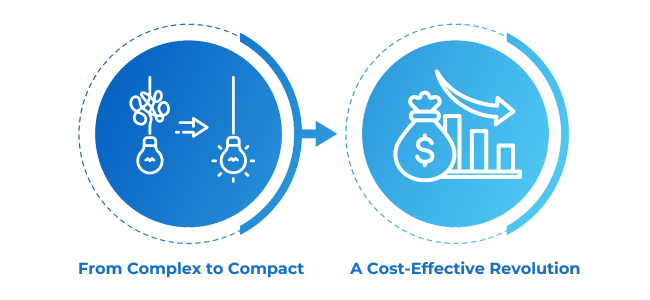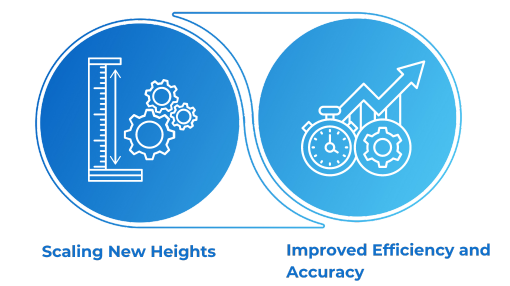How Computer Vision AI is Revolutionizing Complex Machine Vision Systems and Visual Inspection Processes
Published May 13, 2024
For decades, complex machine vision systems have been the backbone of automated visual inspection in manufacturing. Traditional machine vision systems, while effective, often come with challenges such as high costs, complexity, and limited flexibility. Enter computer vision AI – a transformative technology that is simplifying the visual inspection process, making it more affordable, scalable, and efficient.
From Complex to Compact
Traditional machine vision systems relied on rule-based programming, requiring engineers to define every possible defect. This not only made them time-consuming to set up, but also limited their ability to handle variations or unforeseen issues. AI flips the script. By leveraging deep learning algorithms, these intelligent machine vision systems can "learn" to identify defects based on real-world examples. This eliminates the need for intricate programming, allowing for a quicker and more user-friendly setup.

A Cost-Effective Revolution
The hefty price tag of traditional systems often put advanced visual inspection out of reach for many manufacturers. AI, however, offers a refreshingly cost-effective solution. The reliance on standard cameras and cloud-based processing significantly reduces hardware costs. Additionally, the simplified setup eliminates the need for specialized engineers, minimizing labor expenses. This makes AI-powered machine vision accessible to a wider range of companies, allowing them to reap the benefits of automated inspection.
Scaling New Heights:
Traditional systems were notoriously inflexible. Scaling them up to accommodate additional production lines meant significant investment in new hardware and programming. AI, on the other hand, thrives on scalability. Adding new cameras to the system simply requires connecting them to the existing AI network. The AI can then seamlessly integrate the new data stream, expanding its inspection capabilities without complex reconfiguration. This allows manufacturers to easily adapt their inspection process as their production needs grow.

Improved Efficiency and Accuracy
Human inspectors are susceptible to fatigue and inconsistencies. AI-powered machine vision systems, however, operate tirelessly and consistently. They can analyze images at lightning speed, identifying defects with superior accuracy. This not only reduces the risk of human error, but also allows for faster inspections, leading to significant improvements in overall production efficiency.
AI algorithms excel at recognizing patterns and anomalies in visual data, enabling them to detect defects with higher precision than traditional methods. They can process large volumes of images in real-time, identifying issues such as surface imperfections, dimensional inaccuracies, or assembly errors with remarkable speed and consistency. This capability not only improves the overall quality control process but also reduces the likelihood of defective products reaching the market, thereby enhancing customer satisfaction and brand reputation.
AI has entered in visual inspection in 2024
In 2024, the marriage of computer vision and AI is rapidly transforming the machine vision landscape. Companies like Intelgic are at the forefront, offering out-of-the-box solutions that put powerful yet user-friendly AI within reach of manufacturers. Intelgic's system tackles a wide range of inspection challenges, from identifying microscopic defects invisible to the naked eye to detecting major flaws. Furthermore, it excels at precise product measurement, including dimensions like height, width, depth, and even complex features requiring coordinate measuring. This versatility, coupled with the simplicity of Intelgic's solution, empowers manufacturers to achieve exceptional quality control and streamline their production processes.

